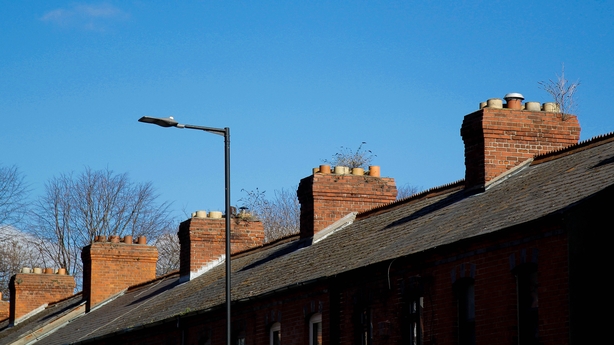Lower wellbeing in families from poorer housing

Families living in poorer quality housing have lower social and emotional wellbeing, according to research by the ESRI.
Its latest published research which has been produced in partnership with the Housing Agency, shows that mothers living in inadequate housing and poorer quality neighbourhoods report more depression, find parenting more stressful, and report greater conflict and less closeness with their children.
The children of these mothers, in turn, face greater social and emotional difficulties at the age of nine. The report finds that income is a crucial driver of housing and neighbourhood quality.
Low-income families are more likely to live in unsuitable homes (such as damp or cramped conditions), they struggle to heat their homes and are more likely to reside in areas characterised by greater disorder and lower levels of bonds and support among neighbours.
Long-term access to resources also plays an important role, with those excluded from the labour market (lone-parent families and parents with a disability) experiencing poorer quality housing.
Families of children with disabilities are more likely to be in homes that are unsuitable and neighbourhoods with more disorder and less social support.
Some migrant-origin families, especially of African or Asian origin, are more likely to experience inadequate housing, even taking account of their income levels.
Problems of housing quality, or having to frequently move home, are more common among those living in the private rented and in social housing.

Families who have experienced adverse life events, such as mental health problems, addiction and contact with the criminal justice system, are more likely to be living in inadequate housing and more disorderly neighbourhoods.
Where families struggle to heat their homes, there is a strong link to the mothers’ wellbeing. They report more depressive symptoms, more conflict and less closeness with their child.
They have a more hostile parenting style, find parenting more stressful, and report poorer quality relationships with their partner.
Mothers in poorer quality housing, such as overcrowded or damp conditions, also find parenting more stressful, report lower quality relationships with their partner, and have more depressive symptoms.
Mothers who spend more time in privately rented homes (compared to an owned home) have more depressive symptoms, find parenting more stressful, and have a more hostile parenting style.
Neighbourhood quality is strongly linked to mothers’ wellbeing.
Turning to children, the report says those who spend more time growing up in worse housing conditions and poorer quality neighbourhoods face greater social and emotional difficulties at the age of nine than their peers.
This happens because the impact of inadequate housing on mothers’ wellbeing spills over to harm their children’s wellbeing according to the report.
For example, mothers living in inadequate housing tend to find parenting more stressful, and finding parenting more stressful is linked with more social and emotional difficulties in their children.
Children in homes that families struggle to keep warm or in more disorderly neighbourhoods appear to face socio-emotional difficulties because of their mother’s greater stress, depression and parenting style.

The ESRI has said that the research highlights the importance of addressing housing and neighbourhood quality in promoting family and child wellbeing.
The proportion of families found struggling to heat their homes suggests the need for supports for upgrading (retrofitting) as well as additional targeted financial assistance to low-income families.
The report also highlights the importance of putting in place supports for parents, including those with school-aged children, embedded in both schools and communities according to the ESRI.
Lower-income families are less likely to feel their local neighbourhoods are safe and supportive, pointing to the need for measures to support community development and to enhance local social capital in disadvantaged areas.





